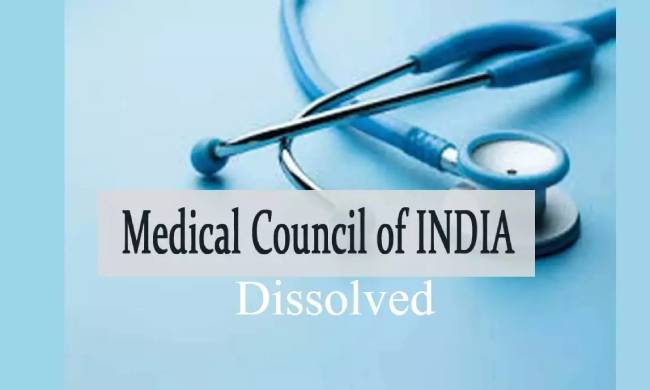The National Medical Commission (NMC) will be functioning as the new body meant for the development and regulation of the medical education and profession in India from today onwards. This body will replace the Body of Governors–Medical Council of India (BoG-MCI) as per a gazette notification by the Central government.
Along with this, the Indian Medical Council Act-which is almost 64 years old now, will be abolished as the new commission comes into existence. Initial steps in this regard were taken on September 26, 2018, when the MCI was replaced by the body of governors, headed by VK Paul. However, the body of governors was to be replaced by the new NMC this time, in the wake of several corruption charges against the existing committee.
The IMC Act has been overridden by the new NMC Act as of August 8, 2019. The gazette notification in this regard was issued by the Union Ministry of Health and Family Welfare and it stated that Indian Medical Council Act, 1956 (102 of 1956) is hereby repealed with effect from September 25. The body of governors appointed under section 3A of the Indian Medical Council Act, 1956 (102 of 1956) in supersession of the MCI constituted under sub-section (1) of section 3 of the said Act shall stand dissolved as per the notification.
The NMC body will be comprised of the former head of the Ear Nose Throat (ENT) department of All India Institute of Medical Sciences (AIIMS)-Professor Suresh Chandra Sharma, as the chairman of the commission. Additionally, the Appointments Committee of Cabinet (ACC) has appointed Dr. Rakesh Kumar Vats as the secretary of the NMC.
The overall composition of the board of members for the new NMC body will be made of a chairman, a secretary, 10 ex-officio members-which include the presidents of 4 autonomous bodies of the commission, along with 22 part-time members.
The 4 autonomous boards under the newly formed NMC include an Under-Graduate Medical Education (UG), a Post-Graduate Medical Education (PG), Medical Assessment, and Rating and Ethics and Medical Registration.
As per the new medical education structure formulation under the NMC, the final year Bachelor of Medicine and Bachelor of Surgery (MBBS) Examination shall now be called as the National Exit Test (NEXT). This test will provide license to practice medicine, for the selection criteria of foreign medical graduates, and admission criteria into PG courses.
Hence, now apart from the National Eligibility and Entrance Test (NEET), the NEXT will also be considered by various medical institutions. The NEXT will be a commonly accepted standard of admission criteria by the entire medical profession in India.
The author is a student member of Amity Center of Happiness.





